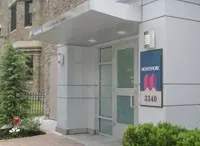Training
Faculty
Our fellows have the privilege of training with an eminent group of Child/Adolescent psychiatrists. Leaders in research, psychopharmacology, child psychotherapy and psychoanalysis, our faculty members are distinguished by their academic and clinical expertise, as well as their longstanding commitment to the teaching and supervision of fellows in their field.
Supervision
The supervisory process is psychiatry's time-honored approach to developing and refining the trainee’s psychotherapeutic and other clinical skills. Throughout their time with us, residents and fellows receive a variety of supervisory experiences to ensure that their encounter with each modality is enriched with a high level of expertise. Our trainees have extremely close, constant access to our faculty in a supportive environment. This results in highly effective collaboration and mentoring.
Fellows have multiple outpatient psychotherapy and psychopharmacology supervisors, an administrative supervisor and participate in group Cognitive Behavioral Therapy (CBT) supervision. In addition to these supervisors, they are supervised in their work in consultation/liaison, emergency child psychiatry and DBT by the service attendings on site. This guidance and oversight is a crucial part of the learning that takes place in the first year and complements the clinical and academic program.
Evaluation
As an essential part of the training program, timely and clear feedback provides residents with a personalized guide for fully developing their clinical skills. Supervisors complete evaluations toward the end of each rotation and at six-month intervals. The Albert Einstein College of Medicine Child and Adolescent Psychiatry Training Committee meet biannually to review the progress of all trainees. Twice a year our directors of training provide trainees with both feedback based on this review and written evaluations.
In addition to the evaluation process, each fellow completes, at a minimum, three Clinical Skills Verification exams and receives feedback from his/her examiner.
There is also an annual written exam, given in compliance with the standards of the Accreditation Council for Graduate Medical Education's (ACGME) Psychiatric Residency Review Committee. We offer this to facilitate professional growth and ensure that our training offers the most appropriate and up-to-date clinical and didactic guidance and input.
Fellows also provide feedback to supervisors and course instructors and evaluate their clinical rotations. Additionally, fellows participate in an annual retreat that consists of a professional development activity, as well as an opportunity to review the program and provide feedback in a retreat report, which is reviewed by the training directors.
Primary Training Facilities

Montefiore
As the University Hospital and Academic Medical Center of the Albert Einstein College of Medicine, Montefiore is one of the nation's leading institutions for patient care, teaching, and research. This renowned academic medical center has campuses in the northern and eastern Bronx (an ethnically diverse county of 1.2 million people) and ranks in the top one percent of U.S. hospitals for investments in medical innovation and cutting edge technology.
Montefiore’s Department of Psychiatry and Behavioral Sciences—ranked by U.S. News and World Report as one of the leading departments in the U.S.—offers children, adolescents, adults and the elderly expert psychiatric diagnosis and treatment of unparalleled quality and sophistication.
Child/Adolescent Psychiatry at Montefiore provides superb state-of-the-art psychiatric diagnostic and treatment services to the children, adolescents and families of the Bronx, including a specialized child and adolescent psychiatry clinic offering testing, diagnostic and multimodal treatments.
Montefiore also provides a clinical and research-oriented suicide intervention program for adolescents, which acts as a major training site for residents and fellows in DialecticalBehavior Therapy.
An extensive psychosomatic medicine service responds to requests from all hospital departments, including the Children's Hospital at Montefiore (CHAM). CHAM serves as the site for the Behavioral Consultation Team at CHAM (BCT-CHAM). In addition, CHAM is the site for the Fellowship in Pediatric Psychosomatic Medicine, the only fellowship of its kind in the U.S.
A 24-hour fully staffed Psychiatric Observation Suite provides emergency psychiatric services, including crisis intervention and consultation services to adults and children in the adjacent Medical and Pediatric Emergency Departments. The Psychiatric Observation Suite provides enormous training opportunities in emergency diagnosis and management of children and adolescents.

The Rose F. Kennedy University Center for Excellence in Developmental Disabilities
The Kennedy Center brings together scientists and clinicians with broad interests in the genetic, prenatal, biochemical, neurological, psychological and environmental aspects of intellectual disability and human development.
Additionally, the Kennedy Center houses the major diagnostic and treatment program for handicapped children in the Bronx, while it also provides a resource for applying research findings to clinical practice and training. Clinical and preclinical departments of the College of Medicine and selected graduate schools of Yeshiva University and the Fellowship in Child and Adolescent Psychiatry participate in the multidisciplinary research and training programs of the Center.
